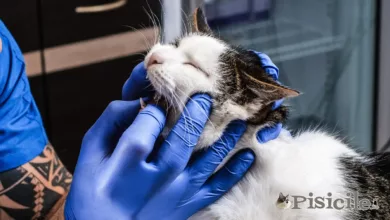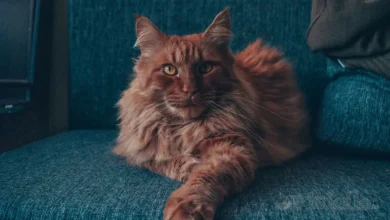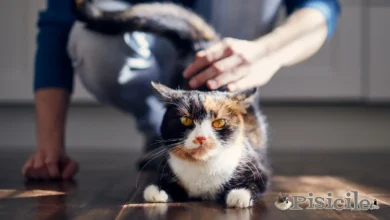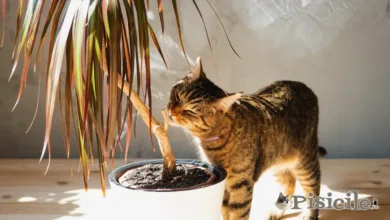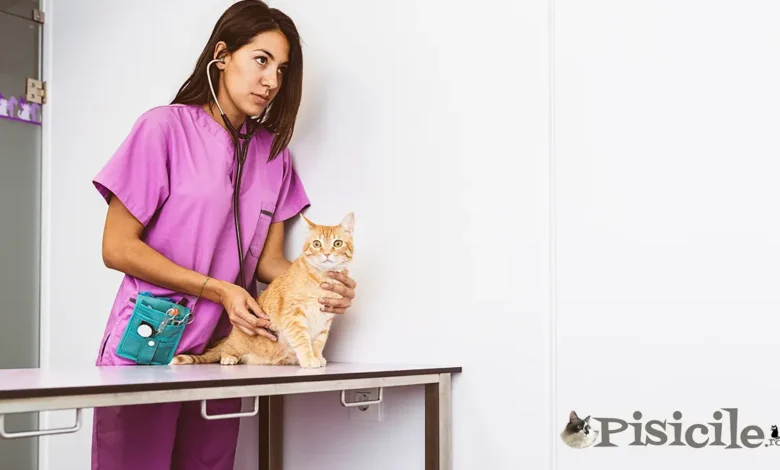
Gastroesophageal reflux in cats can develop into a serious health problem if not treated in time. Your cat's frequent vomiting can indicate gastroesophageal reflux as a major cause for concern, especially when it comes to regurgitating partially or completely undigested food.
It is important to note that while cats may vomit furballs regularly, gastroesophageal reflux is different and poses a threat to animal health.
Gastroesophageal reflux is more common in young cats, but can affect animals of any age. Repeated exposure of the esophagus to gastric juices can even lead to ulcers in the cat's upper digestive system.
Subject
Causes – Gastroesophageal reflux in cats
The causes of gastroesophageal reflux in cats can vary. This can occur especially after the cat has been put under general anesthesia in an incorrect position, allowing gastric juices to reach the esophagus. Also, a high-fat diet can contribute to this problem, especially in situations where the cat vomits frequently.
Let's take a closer look at some of the most common causes of gastroesophageal reflux in cats.
Wrong anesthesia. A common cause of gastroesophageal reflux in cats is an anesthetic administered in an incorrect position. When the cat is under general anesthesia, improper positioning can allow gastric juices to move up into the esophagus, affecting the health of the upper digestive system.
High fat diet. Cats eating a high-fat diet can develop gastroesophageal reflux. High-fat food can cause the lower esophageal sphincter to relax, allowing gastric juices to back up into the esophagus.
Frequent vomiting. Cats with a history of frequent vomiting may be at increased risk of gastroesophageal reflux. Constant vomiting can irritate the esophagus and promote this problem.
Also read: What Causes the Cat to Vomit Frequently?
Anatomical problems. Certain anatomical problems, such as diaphragmatic hernias or congenital malformations of the esophagus, can contribute to gastroesophageal reflux.
Gastric diseases. Gastric conditions such as gastritis or ulcers can trigger gastroesophageal reflux in cats. Inflammation or damage to the stomach can affect how the lower esophageal sphincter works.
The stress. Situations of constant stress can contribute to the development of gastrointestinal problems, including gastroesophageal reflux. Cats sensitive to stress may experience changes in eating behavior and may have a digestive system more susceptible to such disturbances.
Symptoms of gastroesophageal reflux in cats
Symptoms associated with gastroesophageal reflux include vomiting that contains undigested food, not just furballs, or colored fluid (bile or gastric juices). Vomiting is generally not accompanied by muscle spasms. The cat may become vocal and exhibit pain while swallowing, and in severe cases, the appetite may decrease significantly, causing the animal to lose weight.
Treatment of gastroesophageal reflux in cats
In serious situations, the veterinarian may prescribe medication to strengthen the sphincter between the stomach and the esophagus. However, the most commonly recommended treatment involves adjusting the cat's diet.
Sometimes, in more severe cases, it may be suggested to completely stop eating for a day or two, then switch to a low-fat, low-protein diet. It is important that food is served in small portions, spread over several meals throughout the day.
If adjusting the diet does not lead to the disappearance of gastroesophageal reflux, a new medical consultation may be necessary. In this case, the veterinarian may recommend more thorough tests and even an esophagoscopy to examine the condition of the cat's esophagus in detail and to identify any underlying problems. It is crucial to closely monitor treatment response and tailor the approach to each cat's specific needs to ensure effective recovery of digestive health.
In conclusion, it is important to identify and treat the underlying cause of gastroesophageal reflux to ensure an effective treatment approach and prevent recurrences. Consultation with a veterinarian is highly recommended to determine the specific cause and establish an appropriate treatment plan for your cat.
